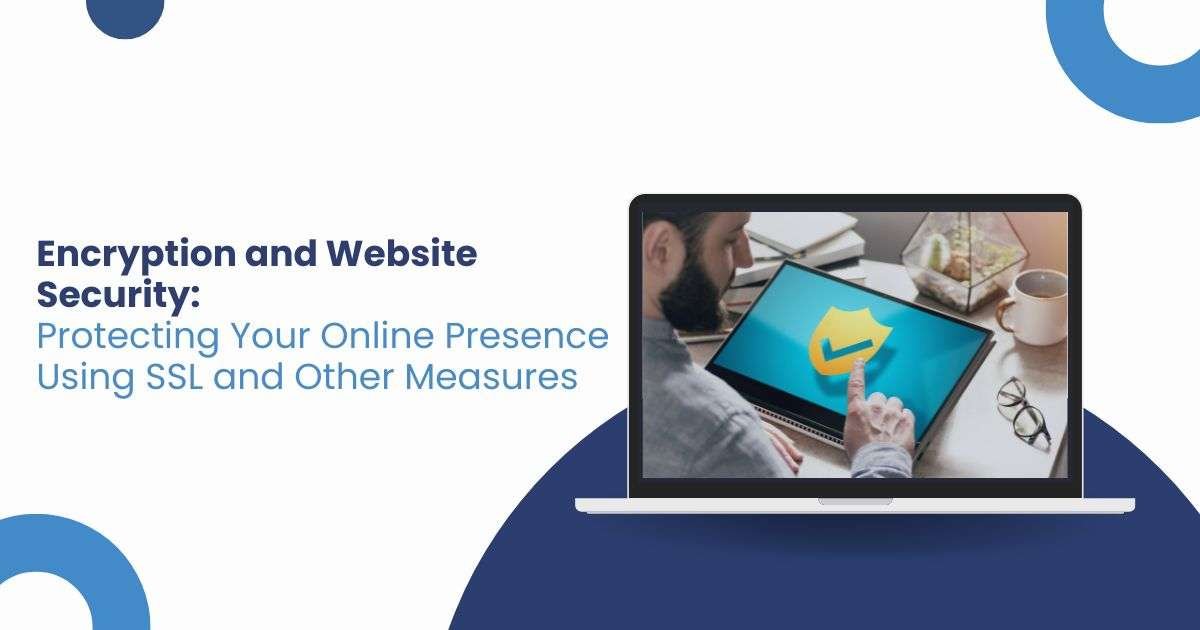Encryption and Website Security: Safeguarding Your Online Presence
In today’s digital landscape, where cybersecurity threats lurk around every virtual corner, safeguarding your website against malicious attacks is paramount. One of the most potent weapons in your arsenal is encryption. Understanding encryption and its pivotal role in encryption and website Security is fundamental to fortifying your online presence.
Encryption serves as a robust defense mechanism, rendering sensitive data indecipherable to unauthorized entities. By encoding information into ciphertext, the encryption website ensures that even if intercepted, data remains incomprehensible and inaccessible to prying eyes. This formidable barrier acts as a safeguard, thwarting potential breaches and preserving the integrity of your website.
Implementing SSL/TLS Certificates: Ensuring Secure Data Transmission
When it comes to secure data transmission over the internet,ssl vs tls security certificate stand as the gold standard. These certificates, which encrypt data exchanged between web servers and browsers, play a foundational role in bolstering website security.
SSL (Secure Sockets Layer) and its successor TLS (Transport Layer Security) protocols encrypt data transmissions, shielding them from interception and manipulation by cybercriminals. However, it’s essential to discern the differences between ssl vs tls security to make informed decisions regarding their implementation.

SSL vs. TLS: Understanding the Distinctions
SSL vs TLS security protocols operate on similar principles, encrypting data to ensure confidentiality and integrity during transmission. However, TLS represents a more advanced iteration, addressing vulnerabilities inherent in earlier SSL versions. Consequently, TLS is widely regarded as the superior choice for secure data transmission.
HTTPS: The Hallmark of Secure Websites
The adoption of HTTPS (Hypertext Transfer Protocol Secure) signifies a commitment to data security and user trust. By encrypting communication between web servers and browsers, HTTPS mitigates the risk of interception and tampering, safeguarding sensitive information from cyber threats.
Encryption Algorithms: Choosing the Right Level of Security
In the realm of encryption, the selection of appropriate algorithms is paramount to achieving robust security. Encryption algorithms serve as the mathematical constructs that underpin the encryption process, dictating the strength and efficacy of data protection measures.
Modern encryption algorithms employ intricate mathematical functions to transform plaintext into ciphertext, ensuring that encrypted data remains virtually unbreakable to unauthorized parties. However, the choice of encryption algorithm entails striking a delicate balance between security and efficiency.
Advanced Encryption Standard (AES): The Benchmark of Security
As the de facto standard for encryption, the Advanced Encryption Standard (AES) enjoys widespread adoption across various industries. Renowned for its robust security and computational efficiency, AES employs symmetric key encryption, wherein the same key is used for both encryption and decryption.
While AES stands as a stalwart guardian of data security, it’s imperative to remain vigilant against emerging threats and vulnerabilities. As cybercriminals continuously evolve their tactics, staying abreast of the latest encryption developments is crucial to maintaining a resilient defense posture.
Safeguarding Information Stored on Servers
Beyond securing data during transmission, encryption also extends its protective mantle to information at rest. Data encryption at rest involves encrypting data stored on servers or storage devices, safeguarding it from unauthorized access and data breaches.
By encrypting sensitive data at rest, organizations mitigate the risk of data exposure in the event of a security breach or unauthorized access. Encryption renders stored information unreadable to anyone lacking the requisite decryption key, thereby preserving its confidentiality and integrity.
Secure Socket Layer (SSL) and Transport Layer Security (TLS):
In the ever-expanding digital ecosystem, where cyber threats proliferate with alarming frequency, safeguarding sensitive data transmitted over the internet is paramount. This imperative underscore the critical role played by encryption protocols such as SSL (Secure Socket Layer) and its successor, TLS (Transport Layer Security), in ensuring secure communication between web servers and browsers.
Multi-factor Authentication (MFA):
As cyber threats continue to evolve in sophistication and scale, traditional security measures alone may prove inadequate in fortifying your website against unauthorized access and data breaches. In this context, multi-factor authentication (MFA) emerges as a potent defense mechanism, augmenting traditional password-based authentication with additional layers of security.
Encryption Guidelines from IT Managed Services Providers
In the ever-evolving landscape of cybersecurity threats, IT Managed Services Providers (MSPs) play a pivotal role in safeguarding their clients’ digital assets against malicious actors. Central to this mission is the implementation of encryption best practices, which serve as the cornerstone of robust data security strategies.
Meeting Regulatory Requirements for Website Security
In today’s increasingly regulated business environment, compliance with data protection regulations is paramount to maintaining the trust and confidence of customers and stakeholders. Encryption emerges as a linchpin in achieving regulatory compliance, providing organizations with a potent tool for safeguarding sensitive data and mitigating the risk of non-compliance penalties.
Encryption Key Management: Ensuring Access Control and Data Integrity
As organizations increasingly rely on encryption to safeguard their sensitive data, effective encryption key management emerges as a critical imperative. Encryption keys serve as the linchpin of cryptographic security, enabling the encryption and decryption of data and ensuring the integrity and confidentiality of information.
Managing Website Security Risks Through IT Managed Services
In the dynamic and ever-evolving landscape of cybersecurity threats, proactive monitoring and maintenance are essential to safeguarding your website against malicious actors and emerging vulnerabilities. By partnering with IT Managed Services Providers (IMSPs) equipped with the requisite expertise and resources, organizations can bolster their cybersecurity posture and mitigate the risk of data breaches and cyberattacks.
Fortifying Your Website with Encryption and Robust Security Measures
The paramount importance of encryption in safeguarding your website against cyber threats cannot be overstated, By embracing encryption protocols such as SSL/TLS, implementing robust data encryption practices, and adhering to encryption best practices, organizations can fortify their digital defenses and protect sensitive data from unauthorized access and exploitation.
In today’s hyper-connected world, where cybersecurity threats loom large and data breaches pose significant risks to organizations of all sizes, prioritizing website security is imperative.
By adopting a proactive approach to encryption and implementing robust security measures, organizations can mitigate the risk of data breaches, safeguard sensitive information, and preserve the trust and confidence of customers and stakeholders alike.














